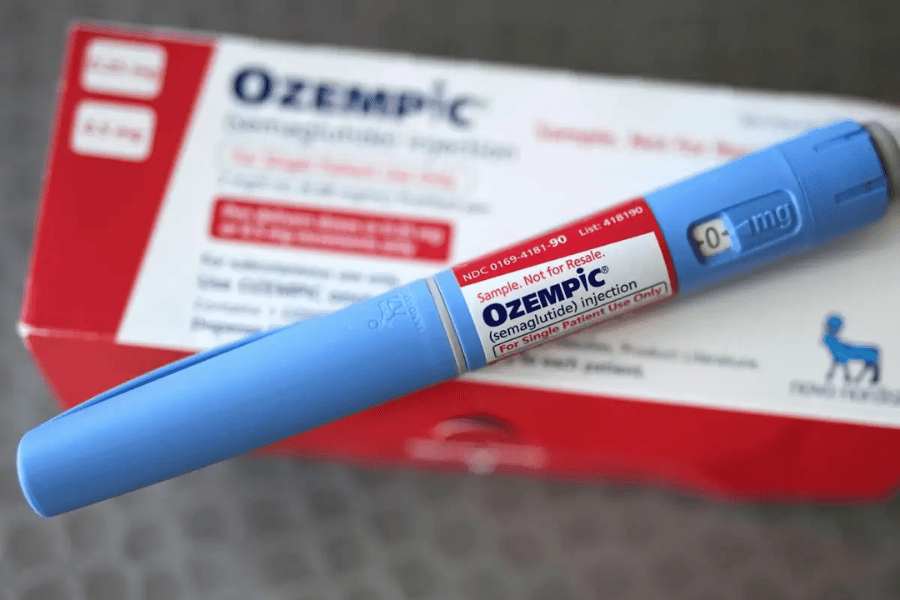The landscape of weight management has undergone significant evolution in recent years. Traditional methods focusing on diet and exercise have been supplemented by advanced scientific discoveries, particularly in the realm of biochemistry. Among these advancements, the role of peptides for fat loss has risen to prominence.
Peptides, small chains of amino acids, have been identified as potent agents in enhancing weight loss efforts. Their ability to influence various biological processes, including metabolism and appetite regulation, positions them as a cutting-edge tool in modern weight management strategies.
Dr. Helen Foster, a leading researcher in metabolic health, notes, “The integration of peptides in weight management is a game-changer. It represents a shift towards more targeted, science-backed methods to aid in fat loss.”
As we delve deeper into this subject, we will explore how peptides function, their impact on fat loss, and the latest peptides making waves in 2024 for their effectiveness in weight management.

peptides for fat loss
Understanding Peptides and Their Impact on Fat Loss
Peptides, essentially short chains of amino acids, are emerging as significant players in the field of weight management. Their role in fat loss is gaining attention due to their unique properties and functions within the human body.
At a fundamental level, peptides are known for their ability to influence a range of biological processes. In the context of fat loss, they work by enhancing metabolism, regulating appetite, and altering the way the body processes and stores fat.
The science behind peptides for fat loss is rooted in their ability to interact with certain receptors in the body, triggering metabolic changes. For instance, some peptides mimic the action of naturally occurring hormones that control hunger and satiety, leading to reduced calorie intake and increased fat burning.
Dr. James Liu, a molecular biologist specializing in obesity research, elaborates, “Peptides have a unique mechanism of action that taps into the body’s natural metabolic pathways, offering a promising approach to weight management that’s grounded in our own physiology.”
This section has laid out a foundational understanding of peptides and their mechanism in promoting fat loss. As we move forward, we will delve into the specifics of three key peptides that are at the forefront of weight management in 2024.

peptides for fat loss
Exploring 3 Key Peptides for Fat Loss in 2024
The year 2024 marks a significant advance in the use of peptides for weight management. Three peptides, in particular, have garnered attention for their effectiveness in promoting fat loss. Here, we explore each of these peptides, their benefits, and the research backing their efficacy.
Peptide #1: Liraglutide
Liraglutide, initially developed for diabetes treatment, has shown remarkable results in weight management. Studies reveal that it aids in appetite suppression and improves glycemic control, leading to significant fat loss. Research published in the ‘Journal of Clinical Endocrinology & Metabolism’ highlighted its potential in reducing body weight by an average of 5-10% over 12 months.
Peptide #2: Semaglutide
Similar to Liraglutide, Semaglutide impacts appetite regulation. It’s particularly noted for its longer duration of action, making it a convenient option for those seeking weight loss. A study in the ‘New England Journal of Medicine’ demonstrated its effectiveness, with participants achieving substantial weight reduction compared to placebo groups.
Peptide #3: Tesamorelin
Tesamorelin stands out for its targeted approach in reducing abdominal fat, particularly in individuals with certain medical conditions like HIV-associated lipodystrophy. The ‘Journal of AIDS’ reported its efficacy in not only reducing visceral fat but also in improving lipid profiles, making it a dual-purpose therapeutic agent.
These peptides represent the cutting edge in peptides for fat loss, offering new hope and options for individuals struggling with weight management. Each has its unique properties and effectiveness, backed by scientific research, making them valuable tools in the fight against obesity.
The Benefits of Peptides in Weight Management
The use of peptides for fat loss offers several advantages over traditional weight management methods. These benefits are not only in terms of efficacy but also regarding safety and overall health impact.
One of the primary advantages of peptides is their targeted approach. Unlike general weight loss drugs or methods, peptides can specifically influence certain metabolic pathways. This specificity reduces the risk of unwanted side effects commonly seen with broader-acting weight loss medications.
Dr. Angela Martin, a clinical researcher in metabolic health, explains, “Peptides offer a more refined method for fat loss. Their ability to target specific aspects of metabolism means we can achieve better results with fewer side effects.”
The safety and efficacy of peptides have been a focus of numerous studies. Research indicates that, when used correctly, peptides can be a safe and effective tool for weight management. For example, studies on Liraglutide and Semaglutide have shown them to be both effective in reducing body weight and well-tolerated by most individuals.
However, it’s crucial to consider potential side effects. Common issues might include gastrointestinal discomfort, nausea, or headaches. These effects are typically mild and temporary, but it’s important for users to be aware and consult healthcare professionals if concerns arise.
Peptides also offer comparative benefits over traditional methods like strict dieting or excessive exercise, which can be unsustainable and lead to negative health outcomes. By leveraging the body’s natural mechanisms, peptides provide a more balanced and health-centric approach to weight loss.

peptides for fat loss
Integrating Peptides into a Weight Loss Regimen
Incorporating peptides for fat loss into a weight management plan requires a thoughtful approach that aligns with individual health goals and conditions. While peptides can significantly aid in fat loss, their effectiveness is maximized when combined with appropriate diet and lifestyle modifications.
Guidelines for Peptide Use:
Consultation with a healthcare professional is paramount before starting any peptide regimen. They can provide personalized advice, considering factors like current health status, weight loss goals, and potential interactions with other medications.
Dietary Modifications:
A balanced diet that complements peptide therapy is essential. This includes a diet rich in lean proteins, whole grains, fruits, and vegetables, while limiting processed foods and high-sugar items. The right diet can enhance the effects of peptides, promoting efficient fat loss and overall health.
Lifestyle Adjustments:
Regular physical activity, adequate sleep, and stress management are critical components of a comprehensive weight loss strategy. These lifestyle factors not only support general well-being but also improve the efficacy of peptides in reducing body fat.
Monitoring Progress:
Tracking progress and adjusting the approach as needed is important. This can involve regular check-ins with a healthcare provider, monitoring changes in body weight and composition, and adapting the diet and exercise regimen based on results.
Dr. Brian Thompson, a specialist in obesity treatment, advises, “The integration of peptides into a weight loss plan should be viewed as part of a broader strategy. It’s about creating a sustainable, healthy lifestyle, with peptides as one of the tools to help achieve weight loss goals.”
Future Prospects and Developments in Peptide Research
The field of peptide research, particularly in the context of weight management, is rapidly evolving. As we move further into 2024 and beyond, the potential for new and improved peptides for fat loss is vast, promising even more effective strategies for combating obesity.
Emerging Trends in Peptide Therapy:
Current research is focusing on developing peptides with enhanced specificity and fewer side effects. This includes the creation of designer peptides that can precisely target specific metabolic pathways without affecting others, potentially reducing the risk of adverse reactions.
Impact of Future Research:
The ongoing advancements in peptide research are expected to provide deeper insights into obesity and metabolic disorders. This could lead to more personalized approaches to weight management, where therapies are tailored to individual genetic and metabolic profiles.
Dr. Susan Patel, a leading researcher in metabolic diseases, shares her optimism: “The future of peptide therapy in weight management is incredibly promising. We’re on the cusp of developing treatments that are not only more effective but also safer and more tailored to individual needs.”
Ethical and Regulatory Considerations:
As with any emerging medical treatment, ethical and regulatory considerations play a crucial role. Ensuring the safety and efficacy of new peptides through rigorous testing and adherence to regulatory guidelines is paramount. Additionally, there’s a need for ethical deliberation on accessibility and fair distribution of these advanced treatments.
FAQ Section: “Navigating the World of Peptides for Effective Weight Loss”
Q1: What are peptides, and how do they aid in fat loss?
A: Peptides are short chains of amino acids that play various roles in the body. In weight management, they primarily aid in fat loss by regulating metabolism, suppressing appetite, and enhancing the breakdown of stored fat.
Q2: Are peptides safe for weight loss purposes?
A: Peptides, when used under medical supervision, are generally considered safe. However, like any treatment, they can have side effects, and their safety can depend on individual health conditions. It’s important to consult a healthcare professional before starting any peptide regimen.
Q3: How can one incorporate peptides into a weight loss plan?
A: Incorporating peptides into a weight loss plan should be done with professional guidance. This typically involves combining peptide therapy with a balanced diet, regular exercise, and other healthy lifestyle habits to maximize effectiveness.
Q4: What are the potential side effects of using peptides for weight loss?
A: Common side effects of peptides can include nausea, headaches, and gastrointestinal discomfort. These are usually mild and temporary, but any persistent or severe symptoms should be discussed with a healthcare provider.
Q5: What future advancements can we expect in peptide-based weight management?
A: Future advancements in peptide-based weight management may include more personalized therapies tailored to individual metabolic profiles, peptides with fewer side effects, and broader accessibility to these treatments.